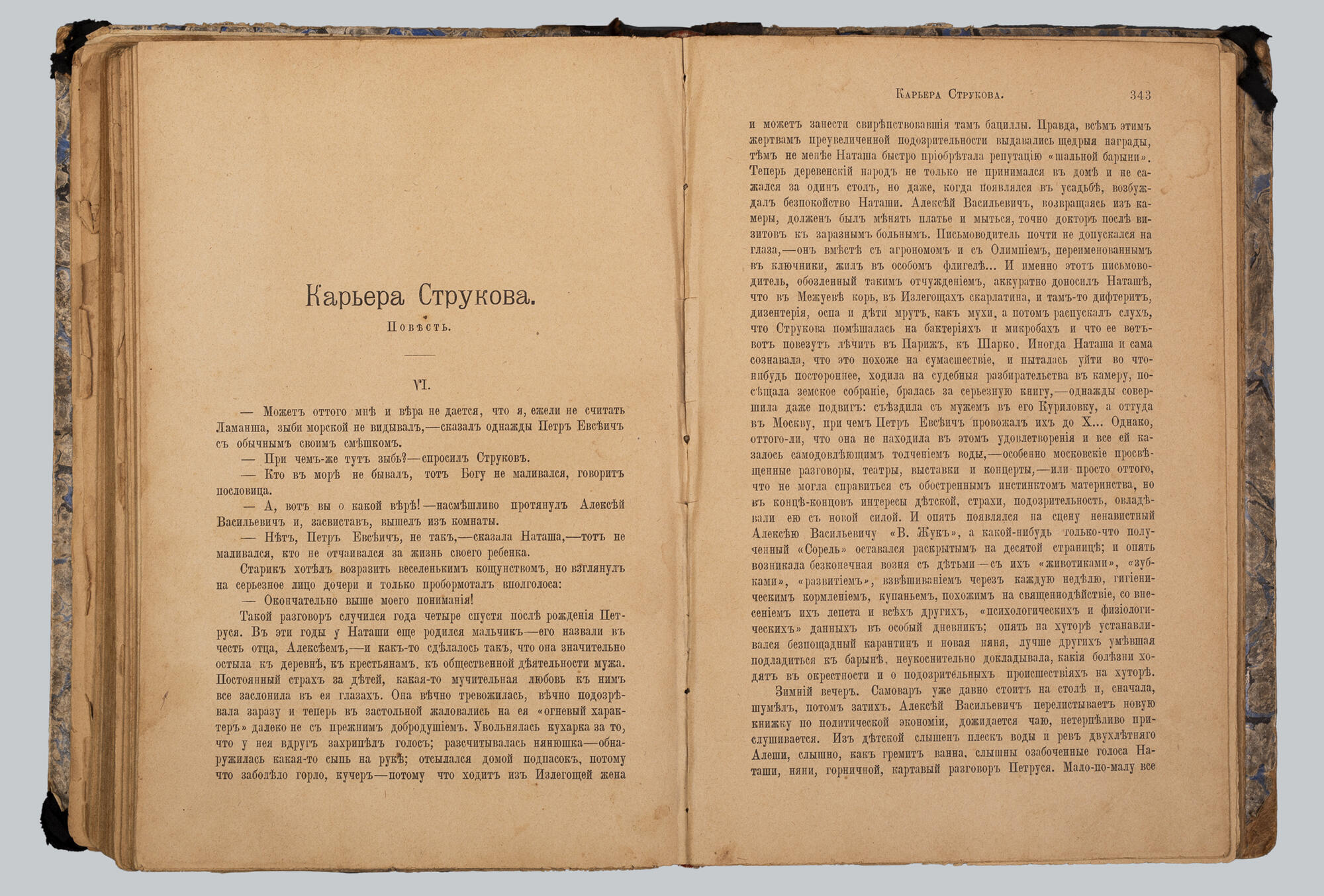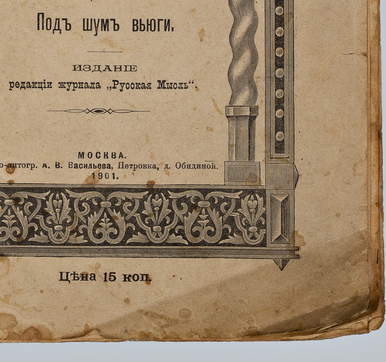Severny Vestnik (The Northern Messenger) was a monthly literary, scientific and political magazine, published in Saint Petersburg from 1885. The magazine flourished in the mid-1880s when famous Russian writers such as Anton Pavlovich Chekhov, Dmitry Narkisovich Mamin-Sibiryak, Vsevolod Mikhailovich Garshin and Gleb Ivanovich Uspensky made their appearance on its pages.
In the 1890s, the magazine faced a crisis: the interest in the publication was waning, and the circulation was decreasing rapidly. In 1895, to create a surge of interest, the magazine’s editor Lyubov Yakovlevna Gurevich invited Alexander Ivanovich Ertel to collaborate. She offered the writer to place the first chapters of his novella “Strukov’s Career” in the December issue of the magazine and continue publishing it in 1896. Ertel accepted the offer.
“Strukov’s Career” is the writer’s last finished work of fiction. Initially, Ertel planned to publish the story in the Russkaya Mysl (Russian Mind) magazine — the edition that printed all his major works, but after reading the text, the magazine’s editor Vukol Mikhailovich Lavrov returned the manuscript to the writer without even submitting it to the censor. At that time, the story was called “Kurilov’s Trustee”.
Alexander Ertel partially revised the text, and the story was printed in the Severny Vestnik thanks to Gurevich. However, the content was significantly reduced by the censors: the passages describing the ruin of the peasants after the reform of 1861, the story about the persecution of Old Believers, and the scenes of social and political life in Russia in the 1880s were cut out.
Ertel, who was not in the habit of keeping proofs of his printed works, saved the proofs of “Strukov’s Career” precisely because they contained the parts that were thrown out by the censor and which the writer considered essential for expressing the idea of the story. After Alexander Ertel died, the proofs were kept by his widow, Mariya Vasilyevna Ogarkova-Ertel. In 1909, when the Moscow Publishing House began publishing the writer’s works, its editor Fyodor Dmitrievich Batyushkov obtained these proofs and restored the author’s text just as Ertel had intended it.



